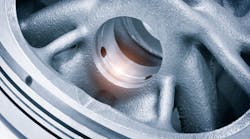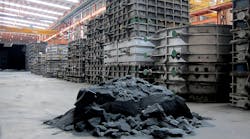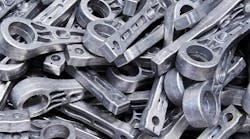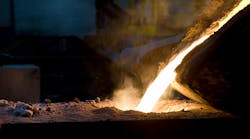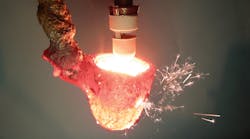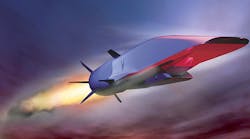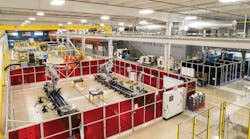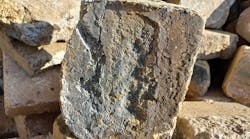Metaldyne Corp. has filed for Chapter 11 bankruptcy, citing an unmanageable debt load, weak automotive industry demand, and a lack of available credit to maintain its organization. Significantly, the auto parts producer announced that its 2006 merger partner, Asahi-Tec, will no longer provide financial support to Metaldyne and will focus on its own Japanese operations.
The $1.2-billion merger of Metaldyne with Asahi Tec Corp. made the former company a separately branded subsidiary of Asahi Tec, with each one producing a range of components for passenger cars, light trucks, and medium/heavy-duty trucks.
Metaldyne manufactures parts of powertrain and chassis systems, including diecastings; Asahi Tec produces ductile-iron and aluminum castings for components supplied to automotive, truck, and construction equipment builders. It also produces aluminum automotive wheels.
"We are grateful for the support Asahi Tec has provided since it purchased Metaldyne in 2007, particularly in connection with how Asahi Tec helped us to eliminate approximately $400 million of debt from our balance sheet," stated Metaldyne chairman, president, and CEO Thomas A. Amato.
The company’s statement revealed it had been “highly leveraged before being acquired by Asahi Tec.” It said Asahi Tec helped to reduce Metaldyne’s long-term debt from “just under $1 billion” to less than $600 million.
Over the past two years Metaldyne has been closing or consolidating operations, and cutting operating costs by an estimated $100 million annually.
"Unfortunately,” according to Amato, “despite this significant debt reduction, the impact from the macroeconomic environment of declining industry volumes, a tight credit market and the uncertainty in the marketplace were simply too large to overcome without a broader in-court restructuring," Amato said.
Metaldyne said it plans to sell most of its assets, and named two private-equity firms —RHJ International and The Carlyle Group — that have indicated interest in buying certain operation. RHJ holds a majority stake in Asahi Tec Corp., and would probably buy some North American and European operations. Carlyle’s interest involves Metaldyne's chassis business in the U.S., Mexico and Spain.
Operations will continue during the restructuring, and Metaldyne reports it has secured $18.5 million in debtor-in-possession financing from Deutsche Bank AG, with funding by some customers.
Latest from Materials
Latest from Materials
Melt/Pour
Modeling Aluminum Oxidation
Feb. 27, 2024
Materials
Quiz: Know the Metals!
Aug. 29, 2023
Issues and Ideas
OSHA Cites Schumann for Blast
Aug. 22, 2023
Melt/Pour
Reducing Alloying, Improving Castability
July 17, 2023
Materials
SinterCast CGI Volume Hits a New High
July 11, 2023
Issues and Ideas
LIFT, DoD Renew Co-Op
May 17, 2023
